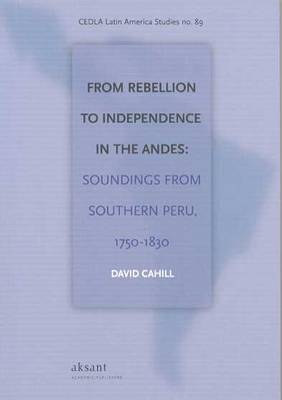Cedla Latin America Studies
1 primary work
Book 89
The essays in this book span Peru's turbulent transition from Spanish rule to Independence in 1824. Situated within the sphere of influence of the old Inca capital, Cuzco, they represent soundings of resistance and rebellion, backed by years of archival research. From these studies emerges a mosaic that deepens our understanding of the social basis of separatist and subversive Andean politics, incorporating evidence often missing from broader studies. This volume provides thoroughgoing in situ studies of the Arequipa riots in 1780, the violent T�pac Amaru Rebellion, and the native Andean insurgency within the abortive revolution of 1814-15, to uncover the social basis of subversive politics during this crucial conjuncture of political change. Against this violent backdrop, the cultural milieu is seen as an enabling force for insurrectionary politics, a conduct and focus for parlaying underlying social discontent, contention and claim-making into action. Political analysis is matched with social structures and social change, shifting colonial racial and ethnic categories, and endemic social conflict between rural elites jockeying for advantage, not the least in the exploitation of native Andeans. This work illuminates how independence from Spanish colonial rule in 1824 brought little amelioration to the social condition and exploitation of native Andeans who, after bearing the brunt of rebellion and war for fifty years, found themselves locked within a continuing, harsh cycle of exploitation after independence.
